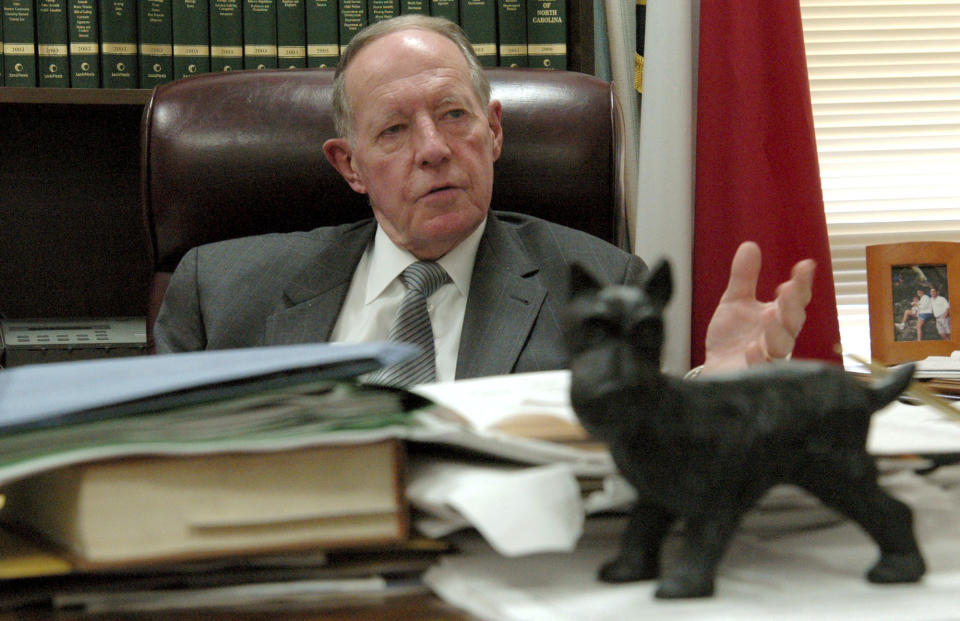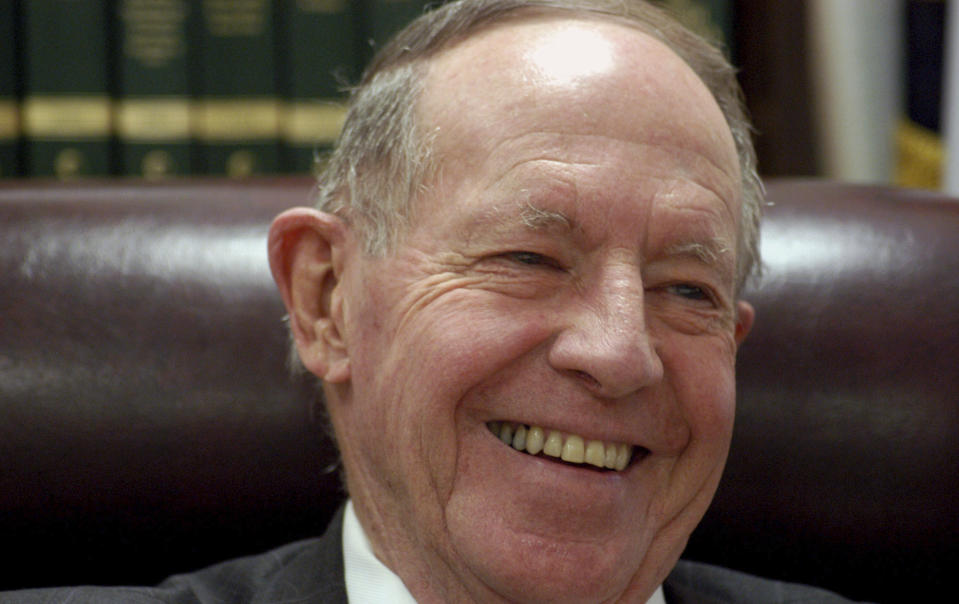Former chief justice who pushed for innocence process dies
RALEIGH, N.C. (AP) — The conservative North Carolina chief justice and prosecutor who led the way for the state's unique innocence process was remembered after his death Thursday as a man who had the political strength to improve the criminal justice system when he saw evidence of its failures.
Chief Justice I. Beverly Lake Jr, 85, died Thursday at the retirement center where he lived, surrounded by family, said his son-in-law Tom Neal. His health had deteriorated rapidly in the past month or so, Neal said.
Lake was chief justice when a string of high-profile wrongful convictions in North Carolina caught his attention. In 2002, he convened a commission of defense attorneys, prosecutors, law enforcement officials and others to review how innocent people are convicted and how to free them.
"We need to make sure that we don't convict an innocent person — and if we do, to catch it fairly quickly," Lake said in 2002. "The ultimate object of any court process is to find the truth. I think we can do some good. And I think North Carolina can take the lead on this."
The study by Lake's commission led to the establishment of the N.C. Innocence Inquiry Commission, modeled after a panel in Britain. Its work has resulted in exonerations of 12 people since it was established in 2006. A judge exonerated three other men based on the commission's work.
"He was my hero," said Greg Taylor, fighting back tears. "I owe my life to his courage."
Taylor was the first person declared innocent by a three-judge panel established through the innocence commission process. Taylor had been convicted of murder and sentenced to life behind bars in 1993; he was declared innocent in 2010.
On the surface, Lake seemed an unlikely vehicle to lead the still-nascent innocence movement in the early 2000s. The Republican's namesake and father, I. Beverly Lake Sr., ran a segregationist campaign in a 1960 gubernatorial primary, and Lake Jr. was a deputy and assistant attorney general in the state Department of Justice.
His colleagues in the N.C. Conference of District Attorneys opposed the establishment of the innocence commission.
But he had a sense of fairness, said Bob Orr, who was elected to the state Supreme Court the same year as Lake. "While Bev was a conservative, certainly, he was always committed to justice, and he was open-minded to hearing different perspectives," he said.
As Lake and his former law clerk, Chris Mumma, reviewed cases where innocent people had been convicted, he became convinced that reform was necessary, Orr and Mumma said. Lake "had the courage and backbone to go against the establishment," Orr said.
In 2007, Lake said people want to believe "that it's pretty much a foolproof system. We know that's not true now."
Mumma, now executive director of the private, nonprofit N.C. Center on Actual Innocence, described Lake as a mentor and a friend. "He had the courage to do the right thing, sometimes in the midst of criticism from his closest friends, that few politicians have," she said.
Lindsey Guice Smith, executive director of the state innocence commission, said that "through his work, North Carolina became and remains the leader in criminal justice reform."
___
Follow Martha Waggoner on Twitter at http://twitter.com/mjwaggonernc


